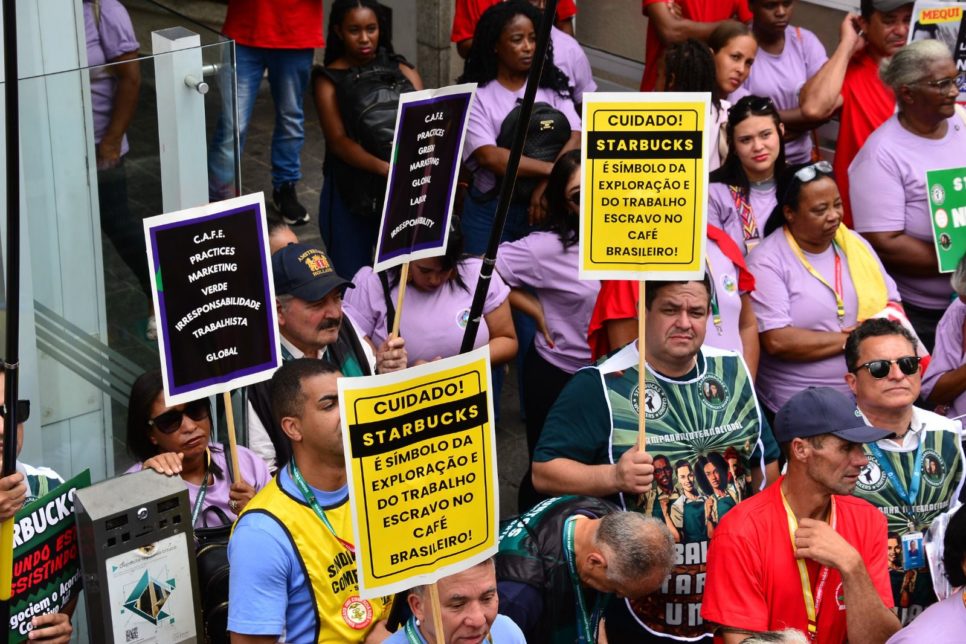The state that tolerates torture
São Paulo lags in national effort to prevent and combat the practice

The state of São Paulo is not like any other when it comes to the Brazilian prison system: it currently holds 35% of all the country’s prison population, which is the world’s fourth largest after the United States, China and Russia. The state government has in its custody some 220,000 people – a number just slightly lower than the total number of prisoners in Mexico.
Therefore, the lack of a mechanism in the São Paulo state administration to monitor and combat torture, which according to the UN is “widespread” in the country’s prisons, is no trivial matter. The idea is not new: at least since 2011, human rights organizations have been pressuring São Paulo to create a State-Level Mechanism to Combat and Prevent Torture similar to the National Mechanism created in 2013 after Law 12,847 was signed by the then President Dilma Rousseff.
These mechanisms are formed by independent experts and they have free access to inspect any detention facility. They are provided for in the Optional Protocol to the Convention against Torture and Other Cruel, Inhuman or Degrading Treatment or Punishment, which was ratified by Brazil in 2007. Based on their inspections, the members of the mechanism may request investigations, conduct medical examinations, prepare reports, catalogue data and recommend public policies.
Read more
On a number of occasions, the UN has reminded Brazil of the need to complement the national mechanism, which works with 11 experts, with these state-level mechanisms. This is the only way, it says, for the country to guarantee coverage of the entire prison system.
The members of the National Truth Commission came to the same conclusion. In its final report published in December 2014, the members of the commission recommended the creation of state-level mechanisms to ensure the effectiveness of the National System to Combat and Prevent Torture.
Today, nine states have passed specific laws to create these mechanisms: Alagoas, Espírito Santo, Maranhão, Minas Gerais, Paraíba, Pernambuco, Sergipe, Rio de Janeiro and Rondônia. The São Paulo government, however, has been unresponsive to the challenge of putting an end to the practice of torture in the state – and its inaction is not new.
In 2012, organizations such as Conectas, Pastoral Carcerária (the Catholic Church’s prisoner outreach service), the Public Defender’s Office, the Regional Psychology Council, ACAT (Action of Christians for the Abolition of Torture) and the Práxis Institute mobilized behind the Working Group established by the São Paulo State Department Justice and Defense of Citizens to improve a draft bill presented to the state in 2011.
However, the meetings were abandoned by the government in March 2013 after a report by the State Attorney General’s Office asserted that the creation of the National Mechanism should precede the creation of the State-Level Mechanism. Despite ignoring examples such as the state of Rio de Janeiro, which has had its own mechanism since 2010, the São Paulo State Justice Department accepted the report’s argument and halted all attempts by the organizations to resume dialogue.
In August of the same year, following the passage of Law 12,847, the São Paulo government ran out of excuses. Demonstrating that the problem is primarily political, and not technical, state governor Geraldo Alckmin ignored an open letter sent by human rights organizations calling for the bill to be submitted to the State Legislature.
Given the absence of any dialogue with the State Executive branch, the draft bill was forwarded in September 2014 to state legislator Adriano Diogo, who presented it to the São Paulo State Legislature. The bill has already received the seal of approval of the following legislative committees: Constitution & Justice (CCJR), Defense of the Rights of the Human Person (CDD) and Finance, Budget & Planning (CFOP).
On International Day in Support of Victims of Torture this year, on June 26, thirteen civil society organizations and bodies such as the Federal Attorney General’s Office for the Rights of the Citizen presented a joint statement calling for the creation of the State-Level Mechanism.
“We know that violence and torture occur frequently inside detention facilities, where it is not possible to observe and monitor the violence committed there. Given the large number of people detained in the state, São Paulo urgently needs to create its own mechanism for the combat and prevention of torture,” reads the document.
Click here to read the statement in full.






